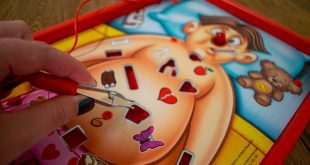 Chronically bad mood, poor sleep, apathy and lack of pleasure from usual favorite activities may be a condition more serious than a normal day “on the wrong foot”.
Chronically bad mood, poor sleep, apathy and lack of pleasure from usual favorite activities may be a condition more serious than a normal day “on the wrong foot”.
At the present time is becoming increasingly rare unfolded pronounced pattern of depression. More often it occurs erased, latent, stealth mode, becoming something of a usual lifestyle of the patient.
Morning feeling of weakness, irritability, lethargy and apathy we often used to perceive as an integral part of our Outlook on life. We share with each other their dissatisfaction and bad mood, compete, whose sense of self is more lousy, explicitly or implicitly used to be dissatisfied with themselves and each other.
Negative experiences are as much a part of our lives as joy, joyous, love. The main thing — to feel the distinction when they start to dominate, overshadowing your view of the world.
So, here are 5 main signs that you are experiencing something more than just a bad mood:
The discrepancy reaction of the offending stimulus
In other words, your reaction, whether negative or positive, must correspond to the stimulus causing it. If you are experiencing sleepless nights in anxiety and sadness because of the risk of losing their jobs, this reaction is justified and logical. But if you go “down in the mouth” due to the fact that I feel myself not competent enough staff, too slow, or too stupid or even unworthy to hold this post, we are talking about latent depression with ideas of self-abasement.(Of course, assuming that you’ve been done well)
Each of us at some stage of life feels emotions characteristic of depression. But pathology they become only if last too long, does not correspond to the objective situation and impact on daily activity of the patient.
If within 2 or more weeks you feel melancholy, depression, unexplained by external factors, but affect your performance, communication with family and friends — it’s time to turn to a psychologist/psychotherapist on a subject that you have a depressive disorder.
Change appetite
Oddly enough, a symptom of depression can be both increase and decreased appetite, all depends on how you used to cope with stress and negative emotions and severity of depressive disorder. If depression occurs latently, without significant effects on your daily way of life and is manifested mostly in apathy, lack of initiative, feelings of smallness, sadness and passivity, it is likely that the appetite will not decrease and will increase.
Modern people, especially the representativeness of the fair sex, used to get missing positive emotions through the various Goodies.
If the condition is serious, depressive feelings are severe, appetite is likely to be reduced.
You sleep too much or too little
The amount of sleep that a person needs to feel comfortable with the concept of the individual. Someone 8 hours of rest — not in the bill, and to whom 5 hours is enough.
On the development of depression can speak about tangible change in the number of sleep, which is not forced, situational. If you are starting to sleep 4-5 hours, not because of the load on the work session or the baby, but because of the painful thoughts about the frailty of life and our own imperfections, it is likely that the reason is depression.
The same applies to excess of sleep. If you go to sleep as soon as you find the opportunity, sleep more than usual and still feel something akin to drowsiness, it could be a sign of your desire to escape from reality. Even at the time and in the dream, but to ease your unpleasant emotions in the waking state.
You can easily deduce from itself
Low threshold of irritability, when even the most ordinary situation can easily lead you off — a sure sign of a depleted nervous system, given in a constant “battle ready” high levels of anxiety and negative emotions.
You find it difficult to focus
Typically, patients describe this condition as the inability to “pull myself together”, “gather” to perform usual everyday tasks. Due to this markedly decreases productivity, attentiveness. In this condition the person usually allow a lot more mistakes, gets tired quickly.
Recognized for 3 and more signs disguised as a “bad mood” of depression? Don’t skimp on your health and take the time to consult with an experienced psychologist or psychotherapist.








